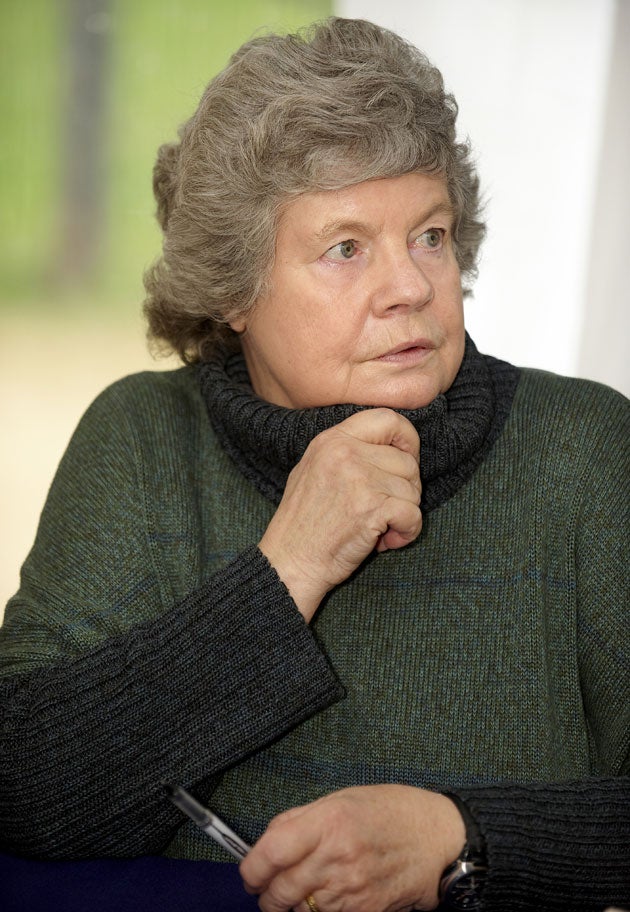Ragnarok: The End of the Gods by AS Byatt

The gods knew, Odin knew, that the time of the wolf would come." AS Byatt's statement goes to the heart of what makes Norse myth so compelling. Its gods, are not immortals, but have precisely specifiable beginnings and a prescribed, and unavoidable, ending. For all the terrors they wreak and inspire, their power is ultimately finite.
Odin, "the ruler of the gods", who knows everything, thanks to his attendant ravens Huginn (Thought) and Muninn (Memory), will perish in the jaws of Fenris, after that wolf has swallowed the sun and savaged the moon. Fenris is the monster-child of Odin's one-time blood-brother, the trickster god, Loki, father of two other death-dealers: the venomous Midgard Serpent who lies coiled round the roots of the world-tree, the ash Yggdrasil, and Hel, goddess of the Underworld.
Loki himself, for all his cunning, will not survive either. "No one," observes Byatt, "had any doubt that Ragnarök [literally the end, or destiny, of the gods] was coming, neither the gods, nor the wolves, nor the snakes, nor the shapeshifting trickster." For since its mightiest must go under in one last showdown ("the gods were judged and found wanting"), it follows that all other life supported by Yggdrasil will also face destruction. Two quite unanswerable questions arise: "Who judged? What brought Ragnarök about?"
"When Canongate invited me to write a myth," relates Byatt, in an epilogue as fascinating as the preceding narrative, "I knew immediately which myth I wanted to write... the myth to end all myths." A principal source for our knowledge of Norse cosmogony is Snorri Snorluson's Prose Edda, written in Icelandic in the 13th century. But Snorri does give us a section "After Ragnarök", heralding the dawn of a new, preferable world. Later commentators, among them the influential Danish bishop NFS Grundtvig, have seen this as an importation from the Christianity to which Snorri and his audience subscribed. The real Ragnarök had appalling finality, and it was with this that Byatt wished to grapple.
How best to present a vision of existence so widely reverberant and yet so at variance with the most dominant western Weltanschauungen: Judaeo-Christian, Freudian, Marxist? Byatt remembered her own first reception of it, as a little girl, through the medium of Asgard and the Gods by W Wägner (1880). So the sequence of mythic events here have passed through a double crucible: an objective 19th-century scholar's intellect; an insightful but innocent girl's sensibility. Her use of the second device, of "the thin child", is brilliantly effective.
Born 1936, Byatt was three at the outset of a war feared likely to end in total world devastation and the assertion of Chaos. Her father was fighting in North Africa; she never expected to see him again. The notion of Ragnarök thus had more authenticity for her than Christian eschatology as purveyed in church and schoolroom. In fact, her father did return; there was life after the war, though its menacing shadow could never be wholly dispelled. Her pages evoking this period of the thin child's life are surely among the most beautiful and incisive Byatt has ever written.
She is mindful, however, that for the 21st century Ragnarök suggests possibilities for our civilisation, indeed our planet, as terrifying as all-out war: the demise of multifarious life-forms through human inability to control mind and energies. The Norse gods were too vainglorious, too much the victims of their own appetites, to ensure their own continuation. Might not the same apply to ourselves?
Join our commenting forum
Join thought-provoking conversations, follow other Independent readers and see their replies
Comments
Bookmark popover
Removed from bookmarks